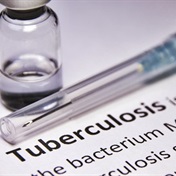But, admitted Minister of Health Dr Manto Tshabalala-Msimang, “TB remains a huge public health challenge in our country.”
Some 1 702 participants – health care workers, academics, patients and researchers – are attending the conference.
Tshabalala-Msimang said both the Department of Health (DoH) and the national government considered TB "one of our national priorities".
Dr Refiloe Matji, chairperson for the conference, called for a partnership in the fight against the disease. "Let’s use this conference as a platform to share information and establish partnerships… Let’s build a national TB control team, share information and tools, and let’s turn this situation around," she said.
TB rampant
Last year 337 641 South Africans suffered from TB and, according to the latest DoH statistics (2006), only 62.9 percent are cured from this disease. Although bleak, these statistics show an improvement from the previous years – there were 341 165 cases of TB in 2006, and in 2005 the cure rate stood at 54.9 percent.
Medication defaulters
If TB medication is not taken diligently, the treatment becomes ineffective and very often the patient builds up resistance to first- and second-line medication. The disease then develops into multi drug-resistant (MDR) or extreme drug-resistant (XDR) TB, which require longer and more expensive treatments, with patients quarantined in TB hospitals for up to 18 months. The cure rate for XDR-TB is very low, and the disease mostly results in death.
"The key to reaching the national TB outcome targets is to diagnose early and treat completely – it's as simple as that," said Tshabalala-Msimang.
Tshabalala-Msimang expressed her concern at the high incidence of patients defaulting on their TB medication: the rate was estimated at 8.8 percent for the first two quarters of 2006.
In his state-of-the-nation address earlier this year, President Thabo Mbeki announced as a target the reduction of the TB defaulter rate to 7 percent. To this end, the DoH has deployed 72 TB defaulter tracer teams in districts with high defaulter rates.
President Thabo Mbeki also directed the DoH to accelerate the training of health personnel in the management of tuberculosis. "We shall be training over 3 000 health personnel in the management of TB before the end of the year," confirmed Tshabalala-Msimang.
New rapid diagnostics
In the last few days, Tshabalala-Msimang announced DoH plans to roll out technology that will enable laboratories to diagnose drug-resistant TB within seven days, compared to the current tests that can take up to four months.
This DNA-based technology is already available in four provinces.
"This success has revolutionised the diagnosis and management of drug-resistant TB with benefits to the individual patient as well as the public in general."
TB and HIV co-infection
South Africa’s high incidence of co-infection of TB and HIV is one of the reasons why the country’s cure rate is so low. As many as 60 percent of South African TB patients are also infected with HIV, according to Dr Okey Nwanyanwu from the Centres of Disease Control and Prevention (CDC).
In light of this alarming statistic, Tshabalala-Msimang delivered the encouraging message that "TB is curable, even in the presence of HIV infection.
"We did, as far back as 2001, introduce TB and HIV collaborative intervention as part of our treatment interventions. Our health professionals test HIV patients for TB, and TB patients for HIV."
Tshabalala-Msimang appealed for increased investment into TB research. "The available drugs and diagnostics are old and ineffective," she said.
She also made the point that to some extent, TB is a socio-economic phenomenon: "We all know that TB is a disease of poverty, and poor living and working conditions contribute to its incidence." She emphasised that it will take a combined effort from all social spheres to eradicate this disease once and for all.
- (Wilma Stassen, Health24, July 2008)




 Publications
Publications
 Partners
Partners










